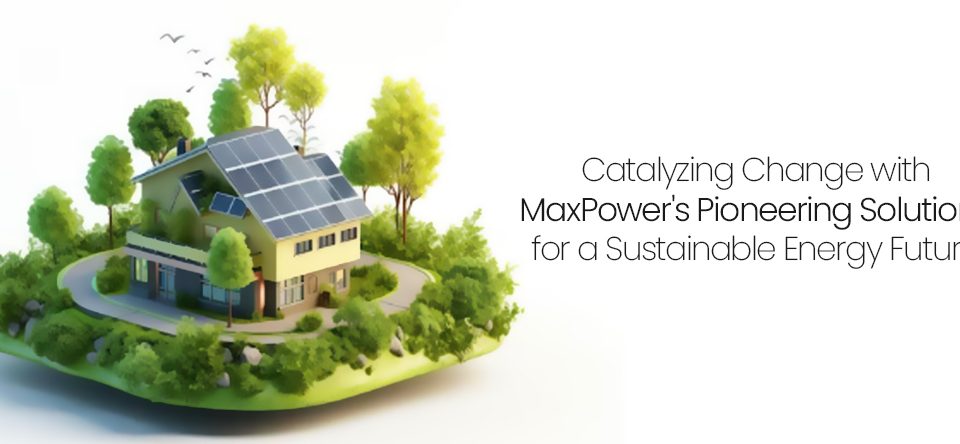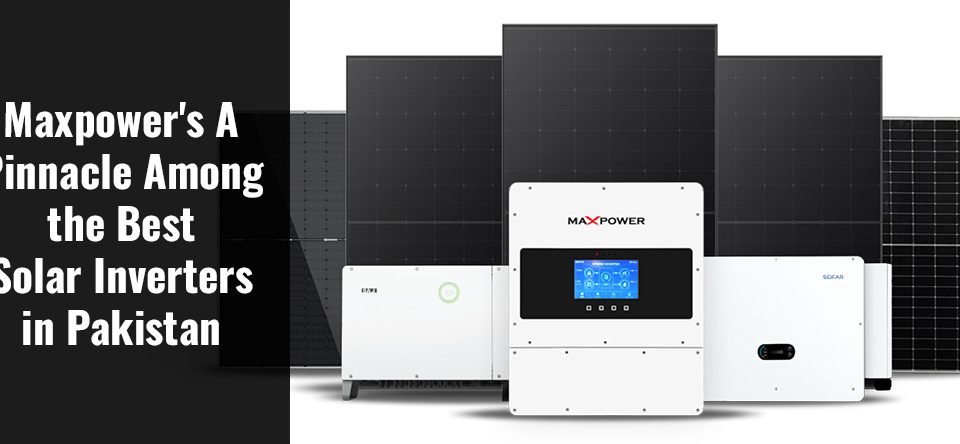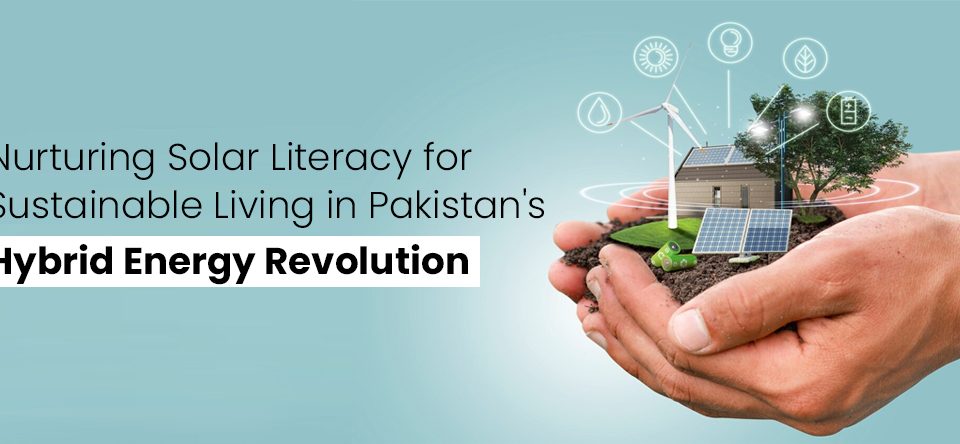
Proper Way of Installing Solar Panels in Your Place – A Step-by-Step Guide
June 26, 2021
Cost Effective Energy Source for Residents of Pakistan
September 3, 2020Whether it is an on-grid or off-grid—solar power system works on the same basic principles, they convert sunlight into DC power that is stored in the batteries for usage. The solar panel system is helpful to replace the hassle of power connection, or extensive electrical billings. Some of the most useful advantages of using the photovoltaic plates for electrical production are:
• No fossil burning or green houses gasses—thus, ensuring more breathable and cleaner environments.
• The energy is free—you don’t have to bother different production houses for any sort of power requirements.
• They are more reliable source of energy in remote areas where electrical production is not automated.
Now the question rises, as there are two sorts of solar panel system—grid or off-grid, which one is right for you? Here, we will discuss the differences between an on-grid & off-grid solar system, so that you can decide on your own.
• No fossil burning or green houses gasses—thus, ensuring more breathable and cleaner environments.
• The energy is free—you don’t have to bother different production houses for any sort of power requirements.
• They are more reliable source of energy in remote areas where electrical production is not automated.
Now the question rises, as there are two sorts of solar panel system—grid or off-grid, which one is right for you? Here, we will discuss the differences between an on-grid & off-grid solar system, so that you can decide on your own.
On-Grid Solar Panel System
The on grid solar panel systems are likewise known as grid feed solar system or grid-tie. These systems are commonly used by the residential and industrial places. The basic working idea is explained as:
• The credits for energy can be used when your solar panel system is not generating energy (rainy days, at night time).
• No expense for batteries is needed.
• These can also export energy to the batteries.
• At the night time or when there is no sunlight, they are not able to produce power, or generate credits, thus no help at that time.
• If the grid has received any sort of malfunctioning, and the solar power system is feeding it, then it can be harmful to the people living in the place.
Working
The on-grid PV systems convert the sunlight into DC energy—as the dc power cannot be consumed by the standard home appliances, thus a solar inverter is used to convert the DC power into alternating current, then this generated energy is consumed by the appliances. The energy that is not consumed in the place, it is fed to the grid and in return the user gets credit or get paid to a feed-in-tariff. In on-grid solar panel systems, typically no batteries are used.Pros of On-Grid Solar Panel Systems
• You get paid for energy you export.• The credits for energy can be used when your solar panel system is not generating energy (rainy days, at night time).
• No expense for batteries is needed.
• These can also export energy to the batteries.
Cons of On-Grid Solar Panel Systems
• In the times of blackout, there is no power generation or available energy to operate the appliance thru solar panel system.• At the night time or when there is no sunlight, they are not able to produce power, or generate credits, thus no help at that time.
• If the grid has received any sort of malfunctioning, and the solar power system is feeding it, then it can be harmful to the people living in the place.
Off-Grid Solar Panel System
As they are off from the grid, thus they are known as off-grid solar panel systems. They are not connected to the grid, thus there is no hassle of generating power for FiT (feed-in-tariff). As the general idea is:
• Sofar Single Phase Dual MPPT Solar Inverter (5KTLM-G2)
• Sunbridge 2000 Solar Inverter
• Sofar Three Phase 10 MPPT Solar Inverter (110KTL)
They are responsible for converting the DC to AC so that the standard appliance operates without any hassle.
• The cost of installation and energy production of off-grid solar power systems, according to the electrical bills that you might be receiving for whole a year are mostly promising. They put less burden on the pocket!
• As when need to expand the power production, these are much reliable.
• They are not connected to the grid, thus, no possibility of damage from malfunctioning grid.
• They provide electrical power at the times of blackout, night or raining days, when there is no energy production.
Note: The off-grid solar inverters at Maxpower comes with working warranty of up to 18 months thus ensuring quality and durability.
• The maintenance is much often required than the on-grid solar panel systems.
• They aren’t able to give credits, as no FiT (feed-in-tariff) is featured.
• If the PV system (solar inverter or other component) faces stoppage due to any reason/malfunctioning, then it will shut down the whole place.
Working
The solar panels take in the sunlight and covert it into the DC power. Here, the solar inverters play a keen role in the working of off grid solar panel systems. The energy is stored in the batteries, but as the appliances cannot consume DC energy from the batteries, they are needed to be converted into DC power. The solar inverters as:• Sofar Single Phase Dual MPPT Solar Inverter (5KTLM-G2)
• Sunbridge 2000 Solar Inverter
• Sofar Three Phase 10 MPPT Solar Inverter (110KTL)
They are responsible for converting the DC to AC so that the standard appliance operates without any hassle.
Pros of Off-Grid Solar Panel System
• The energy production on off-grid solar panel system allows you to sustain self-sufficient power system that don’t require any outside power integration.• The cost of installation and energy production of off-grid solar power systems, according to the electrical bills that you might be receiving for whole a year are mostly promising. They put less burden on the pocket!
• As when need to expand the power production, these are much reliable.
• They are not connected to the grid, thus, no possibility of damage from malfunctioning grid.
• They provide electrical power at the times of blackout, night or raining days, when there is no energy production.
Note: The off-grid solar inverters at Maxpower comes with working warranty of up to 18 months thus ensuring quality and durability.
Cons of Off-Grid Solar Panel System
• As compared to typical on-grid solar system price in, they can be costly because of back-up batteries.• The maintenance is much often required than the on-grid solar panel systems.
• They aren’t able to give credits, as no FiT (feed-in-tariff) is featured.
• If the PV system (solar inverter or other component) faces stoppage due to any reason/malfunctioning, then it will shut down the whole place.
Summary
Whether it is on-grid or off grid PV system, the basic working of both is same—they generate electrical power from the sunlight that is consumed by the standard appliance. The major difference is where do the excessive power go? In an on-grid solar system, it is fed to the grid, that in return gives on-grid tariff. this helps the consumer to cover expense of electrical power being used when there is no production from the solar panel system. On contrast, the off-grid systems store this excessive energy in batteries, that allows usage when no production is in progress.
Frequently Asked Questions
1Which is better off-grid or on-grid solar system?
The off-grid solar system working is based on excessive energy being fed to the grid, and returning grid tariff. On the other hand, the off-grid solar system is self-sustaining that doesn’t require power connection from outside, the excessive energy is stored in battery packs. The con is, you don’t get any credits because you are not exporting any energy. The on-grid is good for investment, and off-grid is good for personal use.
2Can a house run on solar power alone?
The off-grid solar power system is all about running a house with the help of PV plates alone. This mainly requires installation of proper PV plates, with highly efficient solar inverters, and enough battery packs.
3Do solar panels need batteries to work?
The on-grid solar system doesn’t require batteries to work—the solar inverters directly provide AC to the standard appliance, and the excessive energy is deposited in the grid as FiT (feed-in-tariff). On the other hand, the off-grid solar system needs batteries, that mainly deposits the excessive energy in them, to consume later.
4What are the best solar inverters for off-grid solar system?
Not mentioning the power capacity range, according to the working efficiency for the off-grid solar system, these models are recommended as the best solar inverters for off-grid solar system:
• Sunbridge 3000 Off-Grid Inverter
• Sunglow VM II 5000 Off-Grid Inverter
• Sunbridge PV8000 Off-Grid Inverter
• Sunbridge 4000 Off-Grid Inverter
• Sunbridge 3000 Off-Grid Inverter
• Sunglow VM II 5000 Off-Grid Inverter
• Sunbridge PV8000 Off-Grid Inverter
• Sunbridge 4000 Off-Grid Inverter



